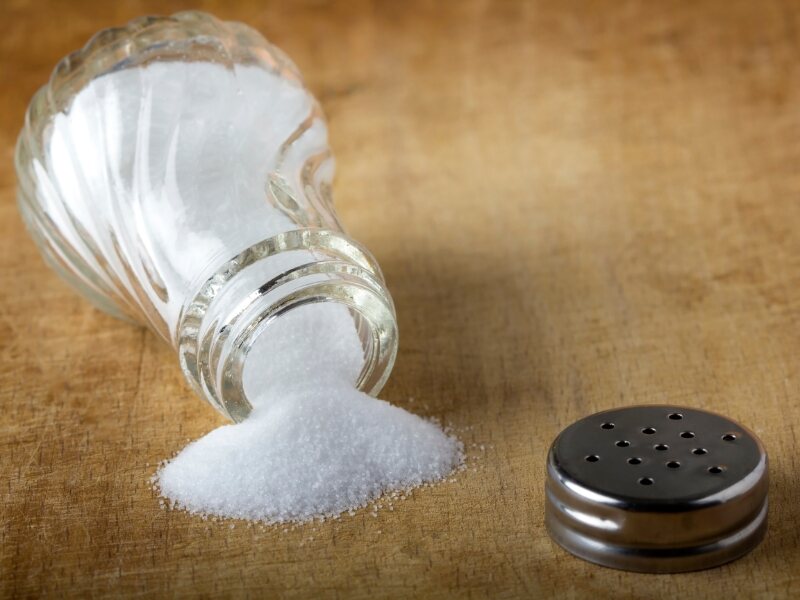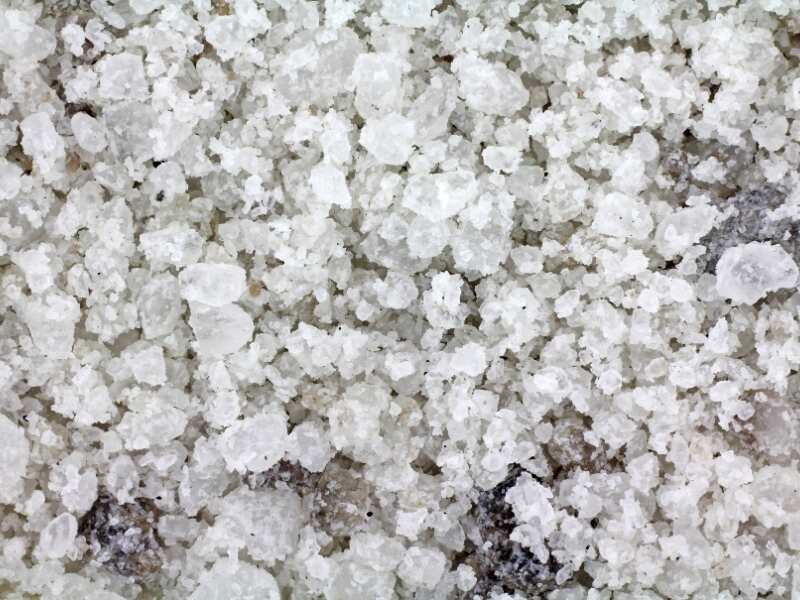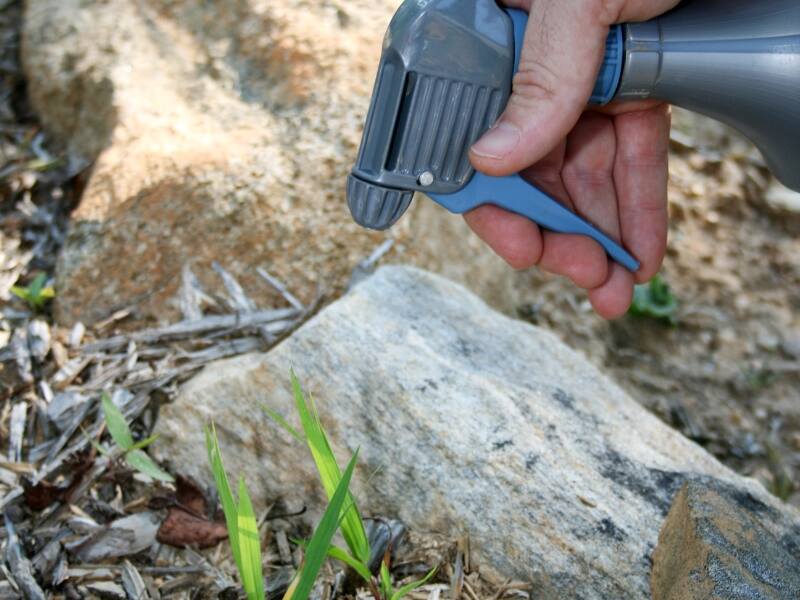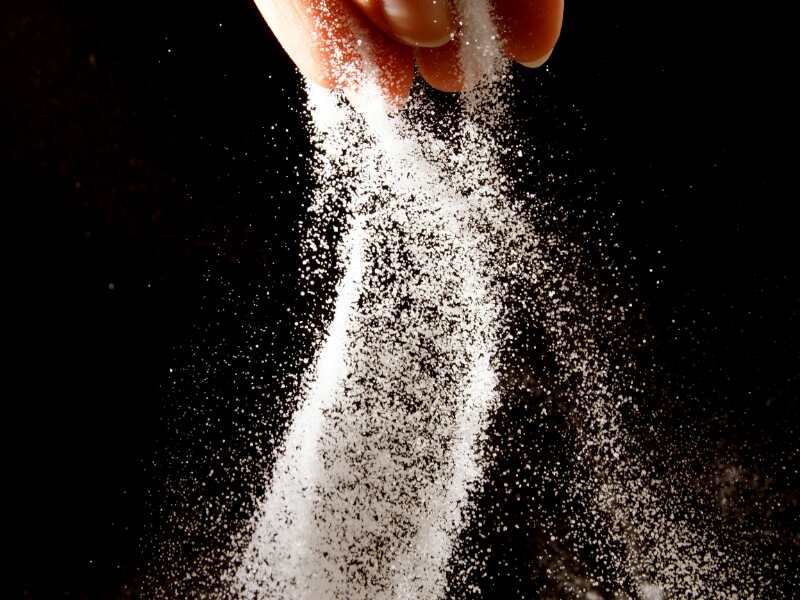How to Use Salt to Kill Weeds
BY LASHONDA TUCKER | AUGUST 7TH, 2023 | BLOGSurely there is another way to kill stubborn weeds than using dangerous chemicals or expensive organic herbicides, right? Right. This article discusses how to use salt to kill weeds. It turns out you can get rid of weeds in a way that does not pose a health risk to you and your loved ones. And it’s right in your kitchen cabinet!
Keep reading to learn how to kill weeds with salt instead of toxic chemicals like Roundup.
Salt Solution Weed Killer Recipes
Who knew sodium chloride, aka regular ole table salt, could be so useful in the yard? Even if all you have is the salt you use to season your food, you can use it to eliminate weeds.
If you live in a location where it gets icy regularly, you may also keep rock salt, the salt placed on the ground to eat away ice in winter, in the house. It can also be used to kill weeds.
Table Salt Weed Killer Recipe

Photo Credit: Sebalos / Canva Pro / License
What you need:
- Table salt
- Water
- Spray bottle
- Optional: white vinegar and dish soap
Solutions more concentrated with salt can disrupt the soil composition and hurt other plants you want to keep. So, a 1-to-2 salt-to-water mixture is best in a flower bed or on your lawn. You can start with a 1:3 salt-to-water ratio and increase the salt content daily until it starts killing the weeds.
In areas where soil health preservation is not important, like cracks in the driveway, a 2:1 or 3:1 salt-to-water ratio can be used to kill the weeds more quickly and with fewer applications.
Add a little white vinegar and liquid dish soap to make the salt solution more effective.
Rock Salt Weed Killer Recipe

Photo Credit: BWFolsom / Canva Pro / License
What you need:
- Rock salt
- Optional: hot water and spray bottle
There are a couple of ways to apply rock salt as a post-emergent weed killer.
Easy No-Mix Rock Salt Weed Killer: Sprinkle a little rock salt on the ground at the base of the weed. This is a fast method for controlling weeds sprouting in driveways and walkways and between pavers. The pesky plants will die within about a week and a half. Rock salt will also kill grass and other plants and stop anything from growing where it has been sprinkled, giving it a pre-emergent herbicidal quality. Rain will eventually dissipate the effects.
Rock Salt Spray Recipe: Add 1 cup of rock salt to 1 gallon of hot water. Mix until the salt is dissolved. Put the combination into a spray bottle. This solution is a good way to kill weeds in grass and flower beds because you can spray it directly on weeds and keep it from coming into contact with the plants you want to keep.
How to Use Salt Spray to Kill Weeds

Photo Credit: killerb10 / Canva Pro / License
Once you’ve mixed your salt spray, spray it directly onto the weeds you want to kill. Be careful not to get too much salt water on your grass or ornamental plants. After five days, respray the weeds. Wait another five days and reapply. If there is torrential rain, it could dilute the salt, and you may have to reapply it sooner than five days.
You don’t want to saturate your soil with salt water. It can harm the soil and nearby plants. So, after spraying weeds with salt water, thoroughly water the roots of any nearby vegetation to dilute any salt solution that made contact with grass or ornamentals.
Overall, a salt spray is best for small-scale weed problems.
Does the Type of Salt Matter?
The type of salt used is important. It must be rock salt or sodium chloride to kill weeds. Table salt that is iodized or non-iodized will work. Avoid using sea salt and magnesium sulfate, which is also known as Epsom salt.
Does It Really Work? – How Salt Works to Kill Weeds
Salt is so effective at killing weeds that it can kill other plants and disrupt the soil composition so that nothing grows for a few years. As previously stated, this prevention of regrowth gives salt a pre-emergent herbicidal quality.
Salt contains acetic acid, which pulls out moisture. The way salt kills weeds is by dehydrating them and disrupting the plant cells’ internal water balance. Weeds absorb this natural weed killer more when water is added to the salt. Salt burns the foliage and prevents the plant from getting sufficient water.
White vinegar also has acetic acid, so adding a little of it to your salt solution will increase the moisture extraction effects.
Adding a little liquid dish soap to your solution can also make the salt more effective because dish soap is a surfactant, meaning it reduces the water’s surface tension, enabling the plant to absorb more of the solution.
Pros and Cons of Using Salt to Kill Weeds

Photo Credit: taffpix / Canva Pro / License
Salt is not toxic like chemical herbicides. However, applying salt as a weed killer does come with advantages and disadvantages. Let’s look at some:
Pros:
✓ Does not cause health risks that herbicidal chemicals containing ingredients like 2,4-D and glyphosate are linked to, such as endocrine disruption and cancer
✓ Cheaper weed killer than commercial herbicides
✓ Children and pets do not have to stay off the grass to avoid toxic exposure
✓ Effectively kills smaller weeds
✓ Can be used near edible plants without exposing them to dangerous chemicals
Cons:
✗ Large quantities can change the pH level of the soil and make it sterile
✗ Can kill nearby plants and grass
✗ May not work on salt-tolerant plants
✗ Not as effective on large plants
✗ Should be used for weed killing on a small scale
Salt vs. Other Non-Toxic Weed Killers
Salt is not the only homemade weed killer that can effectively replace toxic chemical herbicides.
Boiling water has some of the same benefits and disadvantages as a salt solution. Surrounding plants can be damaged if boiling water splashes on them. On the other hand, boiling water will not disturb the chemical composition of the soil and damage it or prevent future growth.
Vinegar solutions usually include adding salt, but the amount of salt is less. The most effective vinegar mixtures are made with vinegar that is 20% acetic acid, also known as herbicidal vinegar. These weed killers, like salt, can change the soil composition.
Ultimately, the decision of which homemade weed-killing method to use is up to you. To salt or not to salt? That is the question. All of these non-toxic herbicides are safer for pets and humans than their commercial herbicide counterparts.
FAQ About Killing Weeds With Salt
It typically takes about 10 days for a salt and water solution to kill existing weeds.
Practicing good lawn care management regularly will help prevent weeds in the first place. It is difficult for unwanted plants to sprout in a well-kept lawn or garden. Here are some tips for preventing weeds in your landscape:
● Use mulch in gardens and on the lawn. Mulch stops weed growth. Apply organic mulch to decrease weed germination. Leaving grass clippings on the lawn after mowing is a natural way to fertilize the grass and suppress weeds. However, leaving clippings when you have lawn weeds will spread the seeds.
● Check for weeds regularly so you can eliminate them when they are young and few.
● Plant grass seed adapted to your area, which will thrive in your climate and more easily outcompete local weeds.
● Mow, water, and fertilize the grass as recommended for your grass type. See recommendations for cool-season grasses and warm-season grasses in our guides.
● Treat the lawn for diseases and insects to keep the grass healthy and weed-resistant.
● Pull up weeds with a tool or by hand and remove the taproot to prevent regrowth.
● Plant ground cover. These ornamentals spread quickly, providing a dense carpet that smothers and suppresses weeds.
Pulling weeds by hand or with a tool is an eco-friendly method that doesn’t affect the soil or other plants. It is easier to manage weeds this way when there are only a few of them and they are young. Wet the soil to remove weeds more easily. Ensure you have removed the entire root system to prevent regrowth.
Final Thoughts
Having a way to manage weeds that is cheaper and more convenient than commercial herbicides is nice. Having a way to manage weeds that is safer for your family, fur babies, and the environment is priceless. Salt is both!
But if you need a break from DIY landscape maintenance, there is a way you can have your cake and eat it, too. Enjoy a beautiful, thriving yard and some leisure time by connecting with qualified lawn care professionals in your area to do all the work while you chill.
Main Photo Credit: ac_bnphotos / Canva Pro / License